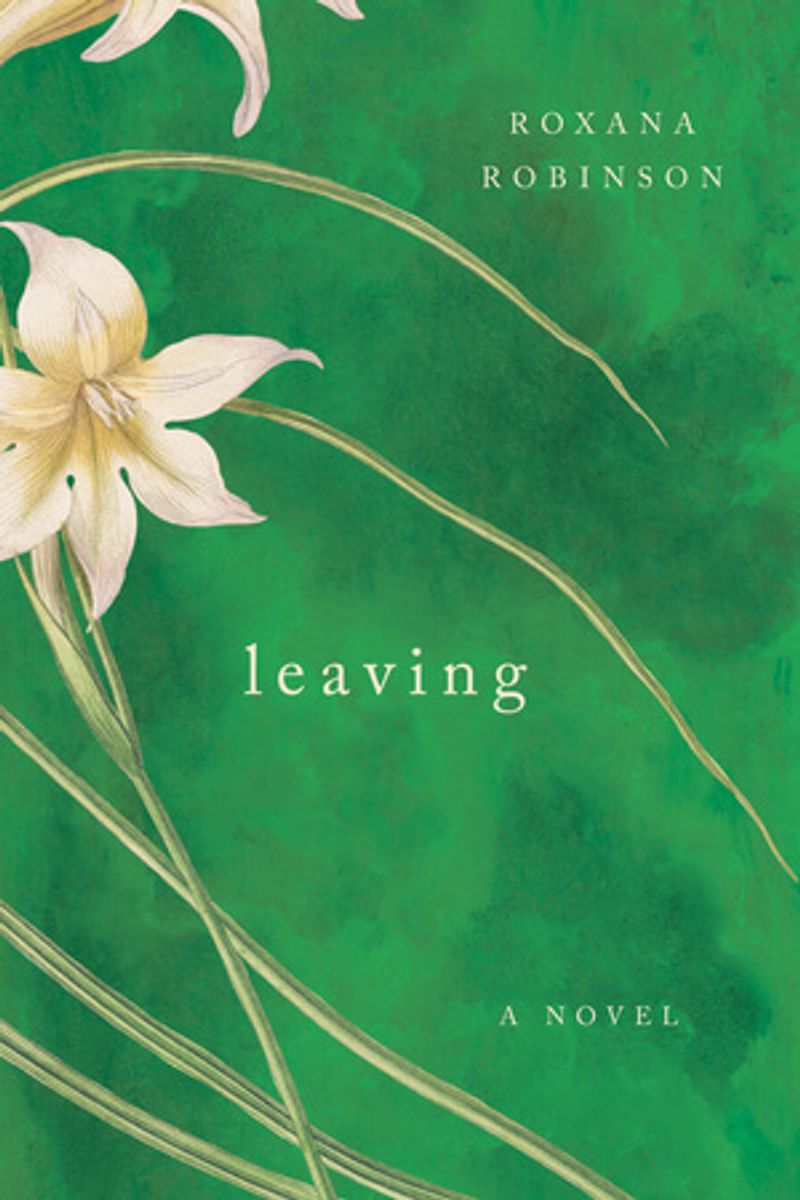Leaving Review at The Washington Post

Joan Frank writes at The Washington Post:
Roxana Robinson’s stunning new novel, “Leaving,” cost me some sleep, and continues to reverberate. A study of the complex joy and pain of late-life love, it is a tour de force and arguably her finest work yet.
The curtain opens on intermission at a New York performance of the opera “Tosca.” Divorced, 60-year-old art curator Sarah recognizes Boston-based architect Warren, also 60. The pair dated in their youth; Warren is now long-married. But past feelings resurface — this time, more complicatedly.
The two have dinner, thrilled to find themselves in perfect sync as seasoned adults; their tastes, passions and accrued wisdom collude and complement. Even walking together “their strides are the same length,” making Sarah “ridiculously pleased.” A delicious, mature love ignites.
Realizing that he and Sarah cannot relinquish each other, Warren dutifully sets about seeking a divorce from Janet, the hopelessly off-key wife he has patiently squired for 34 years. Warren is conflicted about leaving Janet. “Irrationally, he feels bereft. He is losing her.” He wants to “make her understand, so she’ll take his side. But he can’t tell her the truth.” Worse, he risks permanently alienating his beloved only child, Kat, a willful, volatile grown daughter whose resulting rage is implacable. These and countless other scenes of confrontation amazed me with their powerful eloquence.
Robinson, whose previous books include “Dawson’s Fall” (2019) and “Cost” (2008), is a world-class noticer, delivering observations in sentences that are shapely and sensuous yet brisk. Kat, Warren realizes, “is part of him … He can’t sever it from himself, he can’t be severed. He can’t lose her.” Broad strokes give way to finessed particulars — weather, landscapes, food, paintings, books, music. Robinson brings readers inside the heads of her leads and their supporting ensembles: their growing up “in the same community outside Philadelphia … everyone connected by kin or friendship”; their late parents’ stories; their early romance and breakup as college kids; the strangeness of aging, of having sex in an aging body. Sarah wonders “if she will be enough … Beautiful enough? Young enough? There are lines in her face, her neck is getting cords.” Likewise, Warren’s body “is sixty years old. The thin cluster of hair on his chest is gray … there are now hollows below the shoulder bones; gravity tugging at him.” Yet sex proves good: “a kind of explosion of trust.”
Sarah and Warren narrate their own stories in turn, and the full arcs of their long experience are infused with Robinson’s broad intelligence. So much is addressed head-on, unflinchingly: art’s import; architecture’s potential. Politics, too. The novel is set during the Obama years, and Warren touchingly insists the president is “doing a great job,” convinced that “democracy will hold.” Robinson captures childbearing ordeals — horrifying, riveting — and graphic snapshots of the relentless vigils of caring for kids (both toddling and grown). All the good questions seep through. What do we owe whom, when allegiances are torn? Sarah muses: “What are the rules? Should you lie to children, to comfort them? What if you promise them that everything would be all right and then it isn’t?”
Yes, these characters are cosseted by money. Robinson is calmly frank about it. When Warren visits a powerful client in a high-rise office: “One whole wall is glass … The view itself — the height, the bright boats, the pale green statue, the sizzling blue water — is a wealth signifier, like a sable coat.” Though Sarah recalls an era when she had to put back groceries she couldn’t pay for, in present tense she and Warren don’t ask about prices; one imagines their homes resemble old advertisements for Cutty Sark. But their socioeconomic niche enables and defines the principle of honor so central to this narrative; it frees them to zero in on questions of moral debt embedded in their identities.
And even if their wealth feels at times off-putting, Robinson’s writing — unfailingly clear-eyed, packed with psychological insights — compels readers to care passionately about them. Because of that, the novel’s pressure steadily bears down; Robinson has sown in just enough occlusion and uncertainty that its final impact shatters — and the aftershocks abide. “Leaving” stands as a wondrous feat, at once a cautionary tale, cutaway reveal, and pageant. I can’t forget it.
Joan Frank’s latest books are “Late Work: A Literary Autobiography of Love, Loss, and What I Was Reading” and “Juniper Street: A Novel.”
Read at The Washington Post